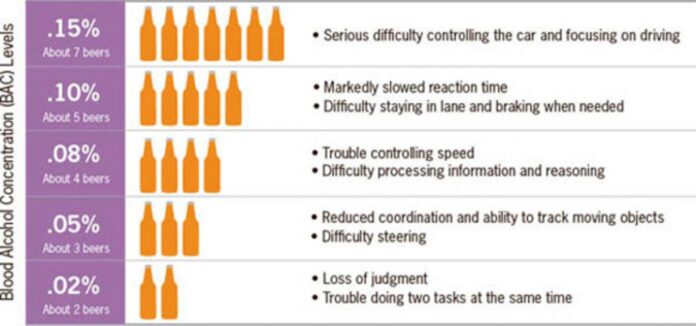
Introduction
In recent years, there has been a significant shift in the legal landscape concerning driving under the influence (DUI) laws, particularly for commercial drivers. These changes are aimed at ensuring safer roads and more responsible driving practices among those operating commercial vehicles. This comprehensive guide will explore the new DUI laws for commercial drivers, their implications, and essential tips for compliance.
Overview of the New DUI Laws
The updated DUI laws for commercial drivers reflect a heightened focus on road safety and public welfare. Unlike standard DUI laws applicable to non-commercial drivers, commercial drivers face stricter regulations and more severe penalties. Here’s a detailed look at the new legal provisions:
- Lower Blood Alcohol Concentration (BAC) Limit:
- For commercial drivers, the legal BAC limit has been reduced to 0.04%, compared to 0.08% for non-commercial drivers. This stricter threshold underscores the higher responsibility placed on those operating commercial vehicles.
- Zero Tolerance Policy for Controlled Substances:
- The new laws enforce a zero-tolerance policy for controlled substances. Any detectable level of illegal drugs in a commercial driver’s system can result in DUI charges, irrespective of impairment.
- Enhanced Penalties for Violations:
- Commercial drivers convicted of DUI face harsher penalties than their non-commercial counterparts. These can include heavier fines, longer license suspensions, and mandatory participation in alcohol or drug treatment programs.
- Mandatory Reporting and Record-Keeping:
- Employers are required to maintain comprehensive records of their drivers’ DUI convictions. This includes immediate reporting to the Department of Transportation (DOT) and other relevant authorities.
- Increased Scrutiny and Random Testing:
- The new regulations mandate more frequent and random testing for alcohol and drug use among commercial drivers. This proactive approach aims to deter potential violations before they occur.
Implications for Commercial Drivers
Understanding the implications of these new laws is crucial for all commercial drivers and their employers. Here’s how these changes can impact them:
- Career Impact:
- A DUI conviction can have long-lasting effects on a commercial driver’s career. It may lead to job loss, difficulties in finding new employment, and a damaged professional reputation.
- Insurance Costs:
- Commercial drivers with DUI convictions may experience increased insurance premiums. Insurers view DUI convictions as high-risk factors, which can significantly raise the cost of coverage.
- Legal and Financial Consequences:
- Beyond the immediate fines and penalties, a DUI conviction can result in substantial legal fees and additional costs related to license reinstatement and treatment programs.
- Health and Safety Risks:
- The enforcement of these laws also emphasizes the importance of personal health and safety. Drivers must be vigilant about their well-being and avoid situations that could impair their ability to drive safely.
Tips for Compliance
To navigate the complexities of the new DUI laws, commercial drivers and their employers should consider the following tips:
- Stay Informed:
- Regularly review and stay updated on DUI regulations and related laws. Knowledge of the latest legal requirements can help drivers avoid inadvertent violations.
- Undergo Regular Testing:
- Participate in regular alcohol and drug testing as mandated. This not only ensures compliance but also helps in maintaining a clean driving record.
- Educate and Train:
- Employers should provide ongoing education and training for their drivers on the importance of adhering to DUI laws. This includes information on recognizing signs of impairment and understanding the legal implications of DUI convictions.
- Promote a Safety Culture:
- Cultivate a culture of safety within the organization. Encourage drivers to report any issues related to substance use and provide support for those seeking help with alcohol or drug problems.
- Maintain Accurate Records:

- Keep thorough and accurate records of all driver-related activities, including any DUI convictions. Proper documentation can be crucial in legal and regulatory matters.
Conclusion
The new DUI laws for commercial drivers represent a significant shift towards enhanced road safety and stricter enforcement. Understanding and complying with these regulations is essential for commercial drivers and their employers. By staying informed, participating in regular testing, and fostering a safety-conscious environment, drivers can navigate these changes effectively and maintain their professional integrity.




